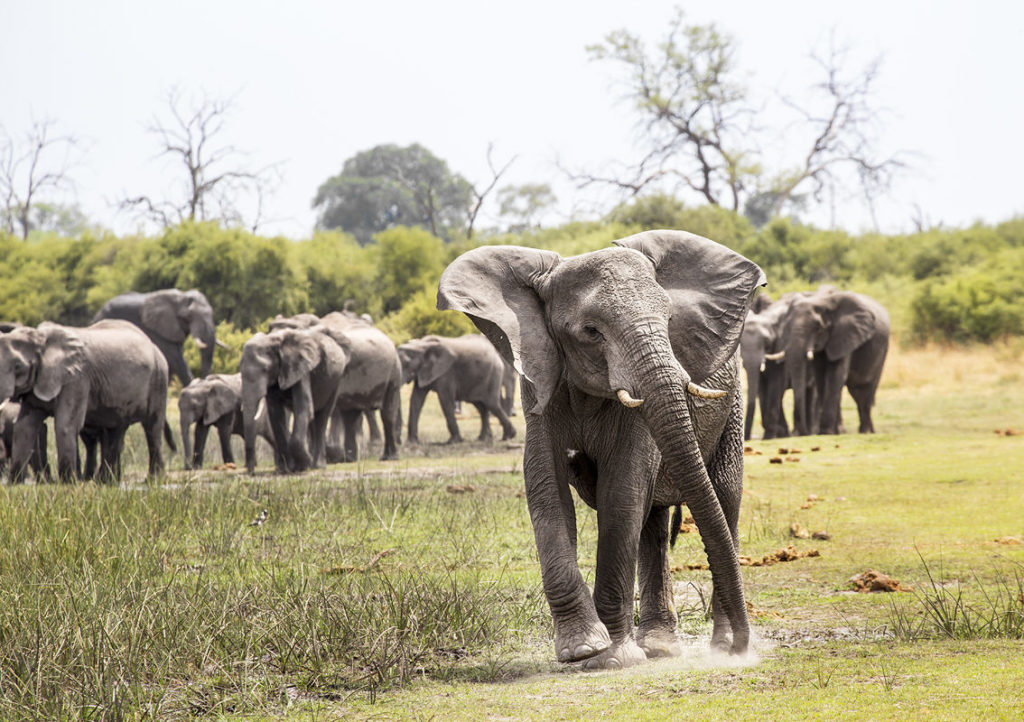The Botswana elephant hunting ban has been in place for a number of years, and it has finally been lifted. Botswana is home to the worlds largest Elephant population, and has started auctioning tags for the first time since the ban has been lifted last year. The government is offering seven packages of 10 elephants each, according to Auction It Ltd., which is operating the sales on behalf of the government. The auction will take place at 3 p.m. local time in the capital, Gaborone, on Feb. 7 and interested bidders will need to put down a refundable deposit of 200,000 pula ($18,300). It can be followed online.
President Mokgweetsi Masisi Lifts Botswana Elephant Ban
President Mokgweetsi Masisi ran on changing Botswana’s Elephant politics last year as he campaigned for October elections that the ruling party won. Masisi lifted the Botswana elephant hunting ban in May, breaking ranks with his predecessor Ian Khama, who was praise for Botswana’s wildlife policies.
Botswana has about 130,000 of the animals nationwide.
The growing number of incidents of elephants destroying crops and trample villagers to death has been the driving force behind lifting the Botswana elephant hunting ban. Hunting will help reduce the size of the elephant population within populated areas were conflict is at its worst. The local communities will be greatly impacted with the extra income and large amounts of meat that will be distributed to the community, much fear will subside and crops will grow now that the ban has been lifted.
The lifting of the Botswana elephant ban has riled up left wing conservationists.
Left wing Conservationists opposed the changes, warning that tourists may go elsewhere. Tourism accounts for a fifth of Botswana’s economy. This is more than likely wrong. The hunting industry and tourism are linked actually took a hit, hurting the economy when the bans were imposed.
The government issued a quota for the killing of 272 of the animals in 2020. The hunting season will last from April to September, during winter when the African bush is easier to negotiate.
